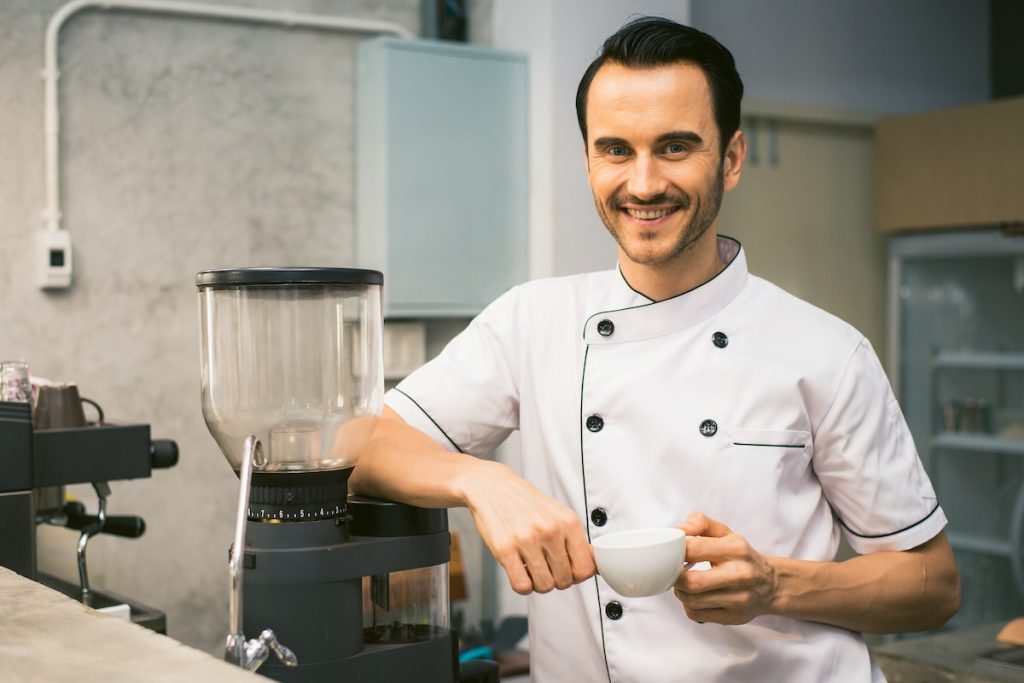- Train kitchen staff on food handling procedures and good hygiene habit
- Ensure all surfaces are regularly cleaned with approved cleaning solutions.
- Invest in a professional pest control service to check for any signs of pests and handle trash removal.
- Perform routine inspections and testing of cooking surfaces, refrigerators, and food items to ensure safety and quality.
Operating a restaurant is no easy task — it takes a lot of hard work, dedication, and, most importantly, attention to sanitation and safety protocols. From your kitchen staff to the customers that come through your doors, there are many factors at play when it comes to ensuring a safe and sanitary environment.
Here are some tips to keep in mind when running a restaurant that will help ensure you’re doing everything possible to make everyone feel comfortable and secure.
Train Your Staff on Food Safety Procedures
One of the most important aspects of running a restaurant is ensuring all food safety protocols are followed. This involves several areas to consider, and everyone should be aware of the crucial aspects, such as:
Food Handling
All kitchen staff should be trained on proper food handling techniques and be aware of any potential risks associated with preparing meals. This includes wearing gloves while handling ingredients, washing hands thoroughly before beginning any food preparation or serving dishes, and keeping work surfaces clean throughout the day. Additionally, all kitchen staff should understand what temperature foods must be cooked for them to be safe for consumption. By training your staff on these procedures, you can be sure that the food being served is safe for guests to eat.
Good Hygiene Habits
Encourage all staff members—front-of-house personnel and kitchen staff—to practice good hygiene habits while on duty at the restaurant. This means washing their hands often (especially after handling money), wearing gloves when necessary (such as during food preparation or service), keeping long hair tied back neatly away from their face while working in the kitchen area, and changing their uniform or clothing if they become visibly soiled during their shift. These small yet essential steps can go a long way toward creating an atmosphere of safety and cleanliness in your restaurant.
Allergies
Follow A Regular Maintenance Schedule
Having a regular cleaning and maintenance schedule and following it diligently is essential for ensuring the safety and sanitation of your restaurant. This includes a variety of tasks, and below are some of the most important ones to include in your regular cleaning routine:

Surface Cleaning
Ensure all surfaces, including floors, kitchen equipment, and bathrooms, are regularly cleaned with approved cleaning solutions. All food storage areas, such as walk-in refrigerators and freezers, should also be adequately sanitized. This will help ensure that every restaurant corner is safe and hygienic.
When cleaning surfaces, consider the materials you are cleaning and ensure the correct type of cleanser is used. For instance, many kitchen and prep areas use stainless steel equipment. In that case, quality stainless steel welding for food industry applications should be used. These can be found at many commercial cleaning suppliers.
Pest Control and Trash Removal
Every restaurant should also have a professional pest control service come in regularly to check for any signs of pests. Additionally, all trash should be removed from the premises each day to prevent any unwanted guests from entering the restaurant.
You can invest in a professional cleaning service, or you can designate specific people on staff to handle these tasks. Either way, make sure it’s someone who takes care to follow the proper procedures for each cleaning task. This will help ensure the safety and health of everyone who enters your establishment.

Perform Routine Inspection and Testing
No matter how sanitary and clean your restaurant is, it’s essential to perform routine inspections of all the restaurant’s cooking surfaces, refrigerators, and other areas. This can help you identify any potential issues before they become significant problems. You can also regularly test food items to ensure safety and quality. This can help identify any contamination or other issues with the ingredients you’re using.
Running a successful restaurant requires attention to detail when it comes to both food safety protocols as well as general sanitation practices throughout the establishment. The above tips will help you create a safe, comfortable atmosphere for both your staff and customers to enjoy. With these tips in mind, you’ll be able to run a safe and sanitary restaurant with ease.

